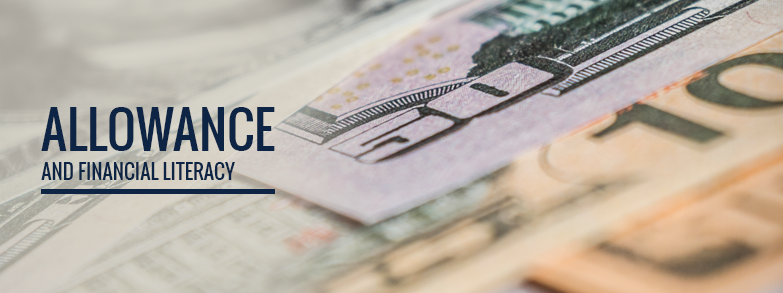The best way for a child to learn about the value of a dollar – and all the other skills adults need to successfully manage their finances – may be through managing an allowance. Are you helping your child succeed on the path to financial literacy? Here are some ways to help your child learn how to manage money.
Allowances
While many families don’t provide their children with an allowance (39 percent of children don’t receive one, according to a AICPA study), providing your child with recurring discretionary income may arm them with budgetary skills. Most experts recommend providing your child with basic income – and oversight – to help them learn to manage funds. Some tips include:
Set Ground Rules
Start by setting ground rules – how much you’ll provide each week and basic off-limit items that don’t fit with your family’s values.
Reserve Veto Power Over Purchases
This is particularly important for young children. With that said, it’s important to let your child make a poorly considered purchase now and then to help them learn the realities of budgeting. Just make sure it’s only for $10 and not $200.
Discuss Expectations
Explain the educational reasons for an allowance. This will help them understand that an allowance is neither a reward or punishment, but an important tool for the future.
Don’t Tie Allowance to Chores
While it’s tempting to do so to teach your child that they need to work to earn money, it’s also important to teach them that as part of a collective unit like a family, they have responsibilities that aren’t money-making activities.
Help Them Budget
While some kids may learn from trial and error about the realities of budgeting, they’ll understand better if you help them develop a simple budget. Set savings goals, amounts to set aside for large purchases and discretionary spending. By starting with a budgetary framework, kids will learn how to develop their own.
Determine Savings and Charity Expectations
Start ingraining the spending and saving habits you want your child to have into adulthood. This includes any charitable contributions that they may make.
Determine What You’ll Pay
Unless you’re counting on providing your child with enough funds to cover all of his or her needs, know how you’ll pay for purchases such as clothes and activities before they’re asking you to split the tab.
While an allowance isn’t the only way to teach your child financial literacy, many families find it’s a great educational tool. As part of that budget, consider opening a Student Savings Account with Points West Community Bank. With no annual fees and a minimum balance of only $10, it’s a perfect way to teach your child how money grows first hand.

